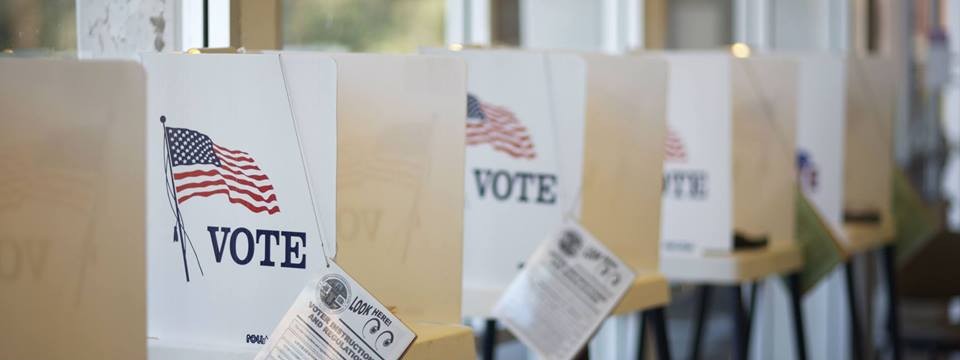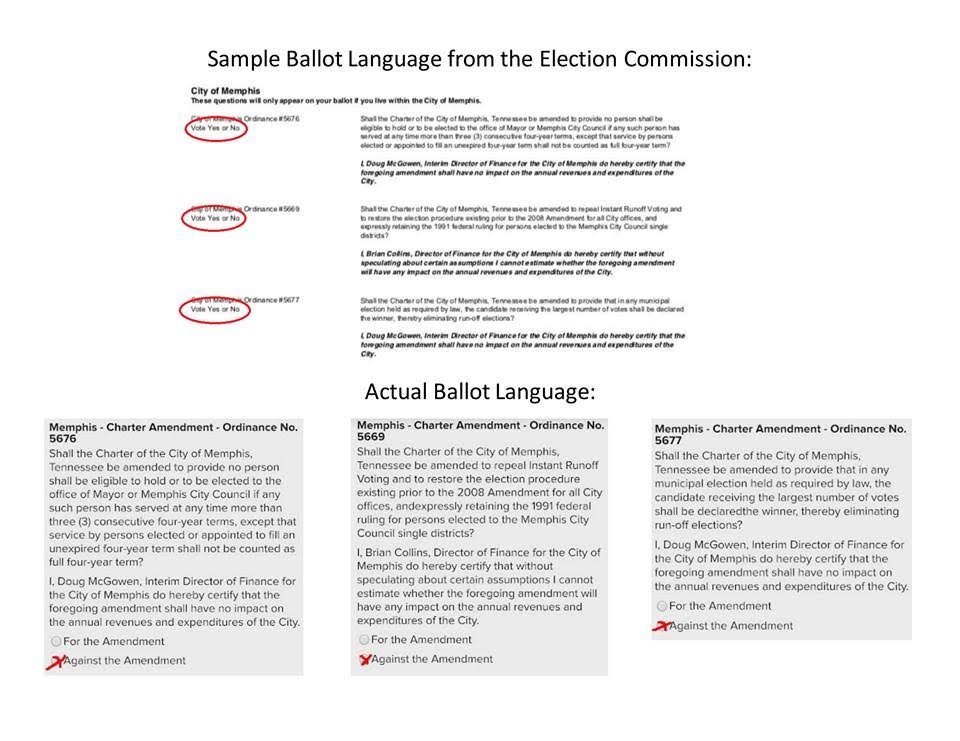
In response to criticism that the three council-related referendum on the November ballot are misleading, Memphis City Council Chairman Berlin Boyd said Thursday the council drafted the language “so that it could be as clear as possible.”
The issue arose Wednesday when the polls opened for early voting, and voters realized the language on the sample ballot was different from actual ballot.
The questions, pertaining to term limits, instant-runoff voting (IRV) in single-member council district races, and runoff elections, were shared by the Shelby County Election Commission with “yes” or “no” responses on the sample ballot. But on the actual ballot, “yes” and “no” are replaced with “for” and “against.”
Some claim the language is intentionally meant to confuse voters. Carlos Ochoa, an IRV advocate, called the word choice “bad grammar at best and an undermining of American democracy at worst.”
‘Misleading’ Ballot Questions Draw Ire from Voters
Unhappy with the language, the nonprofit group Save IRV Memphis posted this to its Facebook page on Wednesday: “Due to some colossal snafu, the ballot language is even MORE misleading than we had originally thought. Instead of voting NO, which is what was shown on the sample ballots, you’ll be voting ‘Against the amendment’ on each referendum. ‘Against’ equals a ‘No’ vote.”
Elena Delavega, a professor at the University of Memphis, said she measured the reading level of the referenda, and the language came in at the highest possible number on the scale, 2,000 Lexile. Delavega said material meant for the general public should be written at 900 Lexile, or the equivalent of a fourth-grade reading level.
This latest debacle comes after all three questions were challenged in court last week by the group Save IRV for being misleading and potentially violating state law. However, Chancery Court Chancellor Jim Kyle denied the plaintiff’s motion to remove them from the November ballot.
Kyle questioned the urgency of the issue, saying that if the questions are approved by voters, then there would still be time for legal action before the 2019 election.
Here are the ballot items in question:
